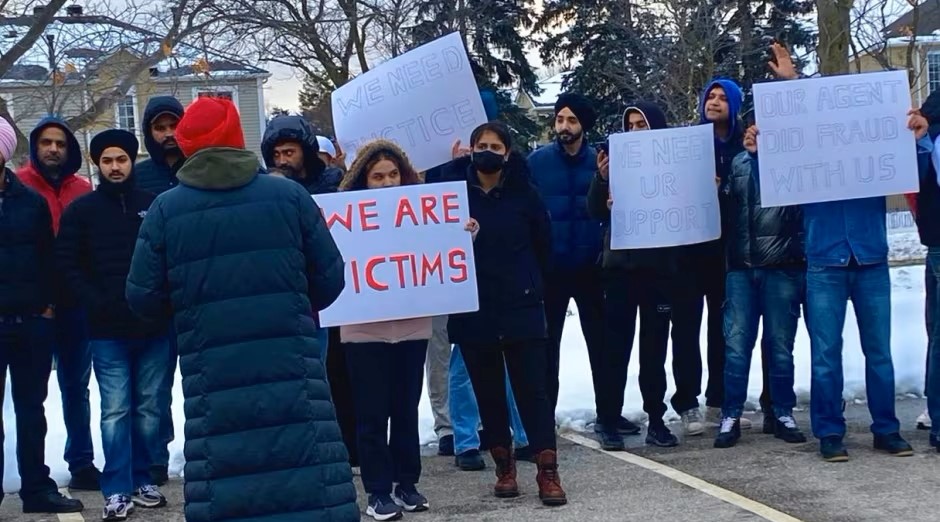May 17 (Punjab Khabarnama) : Hundreds of Indian students in Canada’s Prince Edward Island (PEI) region are staging protests and demanding authorities to allow them to remain in the country. They allege, despite graduating we are being denied work permits and now face deportation. Now they threaten to go on a hunger strike, if demands aren’t met.
Students who have been in the country for over a year now claim the government changed the policy overnight. “They called us here, now they want us to leave,” protest leader Rupender Singh told the CBC. “Our province gave us false hopes,” asserted Singh, who came to Canada from India in 2019.
“They were giving us wrong information. This is totally an exploitation.”
Video footage shows large groups of Indian students marching through streets of Charlottetown, chanting for fairness and protesting against sudden policy changes. One protestor highlighted the impact on both immigrants and locals, suggesting that without international graduates, locals might face delays in services like coffee at Tim Hortons.
“We only get a once in a lifetime chance. We came to PEI because they made these rules that we can apply for PR after six months, one year. Yes they will be affected, but the people of PEI will also be affected, because now they’ll have to wait 20 minutes for a cup of coffee.”
What does the Canada’s PEI law state ?
Last July, PEI passed a law restricting postgraduate work permits to students with specific qualifications. They now allow only students with construction/home-building and healthcare qualifications to get a permit, leaving many international students unable to continue working in Canada.
Similar restrictions were imposed in Manitoba earlier this year, but after protests, the Trudeau government had to extend postgraduate work permits by two years. Now, students in PEI are demanding similar treatment.
What are protesting Indian students demanding?
Students demanding an extension of work permits and a review of the recent changes to immigration policies. They want to be ‘grandfathered’ that will allow them to be exempted from new regulations or policies based on their previous status or circumstances. Hence, if a new immigration policy is implemented that imposes stricter requirements, individuals who applied before the policy change may be “grandfathered in,” meaning they are allowed to proceed under the previous, less stringent criteria.
This status acknowledges the rights of individuals who initiated their immigration process under different conditions and ensures they are not unfairly affected by subsequent changes in the law. Grandfathered status provides a measure of stability and fairness in immigration systems, allowing individuals to plan their lives and futures with greater certainty.
They’ve set a deadline for action, threatening a hunger strike if their demands aren’t met by mid-May.
As tensions rise, the protests are growing, with hundreds joining in and garnering support from various communities. Employers and minority groups have backed the cause, highlighting the broader impact of these policy changes on the community as a whole.

